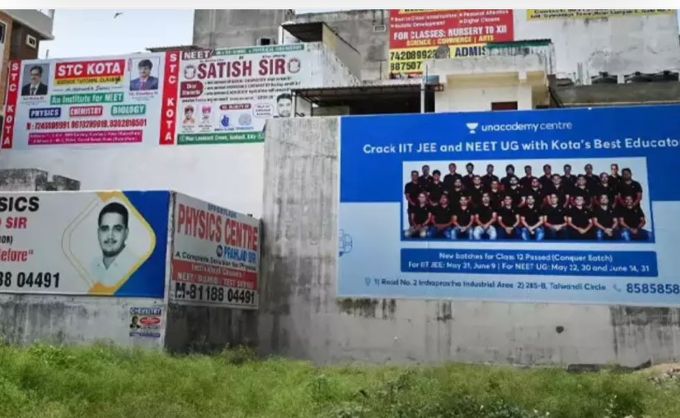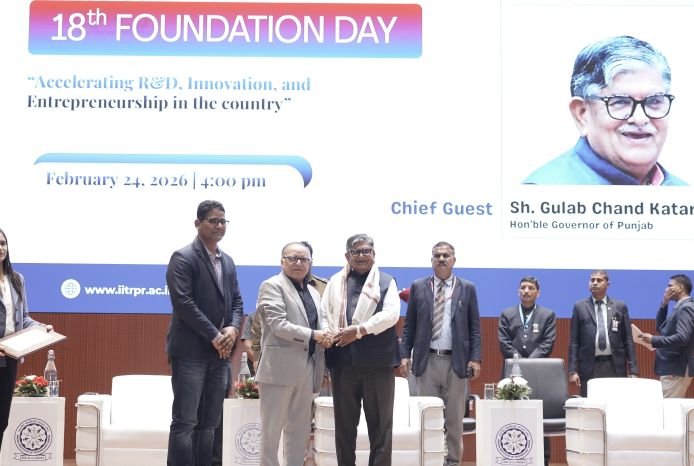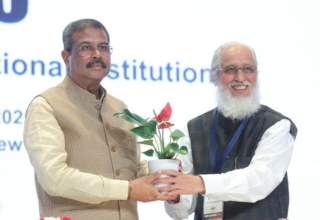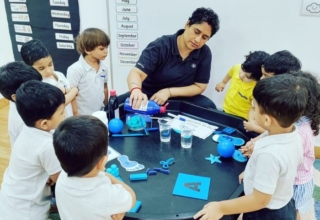
By Autar Nehru
The much-anticipated Rajasthan Coaching Centres (Control and Regulation) Bill, 2025, aimed at establishing a state-level regulatory authority for coaching centres, was not passed in the recently concluded budget session of the state assembly. The bill, which mandates the registration of tuition centres with more than 50 students and subjects them to district committee monitoring with civil court powers, faced strong opposition from MLAs, including some from the ruling party. Key concerns included the absence of a minimum age requirement for student enrollment, leading to its referral to the Select Committee for further review and recommendations.
Introduced on March 19 by Deputy Chief Minister Premchand Bairwa, who also serves as the state’s Higher Education Minister, the bill was significantly diluted from its original draft released in July 2024. Notably, the provision barring students below 16 years from enrolling in coaching centres—originally modeled on the Union Ministry of Education’s ‘Guidelines for Regulation of Coaching Centres’ issued in January 2024—was removed. This omission is widely believed to be influenced by the powerful coaching operators’ lobby, which wields significant political clout in Rajasthan’s entrenched coaching industry, primarily based in Kota, Sikar, and Jaipur.
The All Coaching Institutes Mahasang, representing coaching operators, has denounced the bill as detrimental to the industry and has threatened agitation if it is passed. They argue that the proposed law disproportionately targets Kota and could introduce bureaucratic overreach, driving small coaching centres out of business.
Kota, often dubbed the ‘national coaching hub,’ hosts over 100 coaching institutes enrolling more than two lakh students annually for competitive exams like JEE (engineering) and NEET (medical). While the city has gained fame for producing top-ranking students, it has also drawn criticism for the immense pressure placed on students, leading to a concerning number of suicides—127 cases since 2015 as of January 2025. Issues such as drug abuse, unsafe sexual behavior and emotional distress, group fights, deceptive advertising, and inadequate student support systems have further intensified the call for regulation. Consequently, the bill to regulate the hitherto unregulated coaching institutes in Rajasthan has national ramifications and is being closely watched.
The campaign for regulating coaching centres in Rajasthan gained momentum in 2016 when the state’s High Court took suo motu cognizance of student suicides in Kota, which had reached 78 cases since 2010. Meanwhile, the Union Ministry of Education, under Supreme Court directives and public pressure, introduced model ‘Guidelines for Regulation of Coaching’ in January 2024 after years of urging states to enact laws regulating the sector. These guidelines formed the basis for the Rajasthan Coaching Centres (Control and Regulation) Bill, whose draft was made public in July 2024 before being tabled in the assembly. A previous attempt to regulate the industry in 2022, which sought to ban coaching institutes from glorifying toppers’ success, never reached the assembly.
Beyond student suicides, another major concern driving regulation is the proliferation of dummy schools, often run in connivance with coaching institutes and charge a fraction of the fees schools from willing parents. Many students, with parental backing, prioritize coaching over formal schooling, leading to declining school enrollments. The private school lobby has been pressuring the government to intervene, as middle school students increasingly opt for coaching over schools. This shift is further exacerbated by the gap between board exam syllabi and competitive exam difficulty levels, compelling parents to view coaching as a necessity.
“It’s purely market-driven. Students and parents prioritize competitive exam scores over board exams, which have become merely qualifying in nature. Over the past decade, schools have been gradually deserted—first in grades 11 and 12, then 9 and 10, and now even from 6 to 8. Dummy students, who pay only about 20% of the prescribed school fees, are becoming the norm. This has also marginalized subjects like languages and humanities in favor of STEM,” says Dilip Modi, chairman of JIVEM Education (Jhunjhunu Academy) and an executive member of the Society for Unaided Schools of Rajasthan and the Independent Schools Federation of India, who has long advocated for saving schools from the dominance of the coaching industry.
According to Pune-based consulting firm Infinium Global Research, India’s coaching industry currently generates Rs 58,088 crore in revenue and is projected to grow to Rs 1,33,995 crore by 2028. This booming industry reflects deeper structural issues in India’s formal education system, where students increasingly depend on coaching due to inadequate school education, excessive curriculum pressure, and limited higher education opportunities. The stark reality is evident in the numbers—23 lakh students competing for 112,200 medical seats through NEET and about 13 lakh appearing for JEE in 2024.
Amid growing concerns, CBSE has intensified its crackdown on dummy schools and is reportedly considering changes to affiliation bye-laws that could bar such students from board exams. While these measures signal the government’s intent to address the issue, the debate remains complex. Many parents and students view coaching as a necessary supplement to traditional schooling, given the lack of quality math and science education in both government and private schools. “Regulation should not infringe on our right to choose alternative educational pathways,” argues one parent.
Leading educationist and commentator Anita Rampal, in her opinion piece “Rajasthan’s Coaching Centre Bill Lets Down the Very Students It Claims to Protect,” published in The Indian Express on March 24, 2025, criticizes the overemphasis on entrance examinations at the expense of holistic education. She contends that mechanical solutions are unlikely to transform the entrenched, high-pressure environment of the coaching industry and cannot effectively address the systemic issues leading to student distress and exploitation. “The broader educational ecosystem devalues traditional schooling and promotes a culture where students are driven to enroll in coaching centres from a young age.”
With the Rajasthan High Court actively pursuing the issue and growing public pressure for reform, the bill is likely to return in the upcoming monsoon session of the state assembly. In the meantime, the debate over the regulation of coaching centres continues to intensify, with stakeholders on all sides watching closely.









